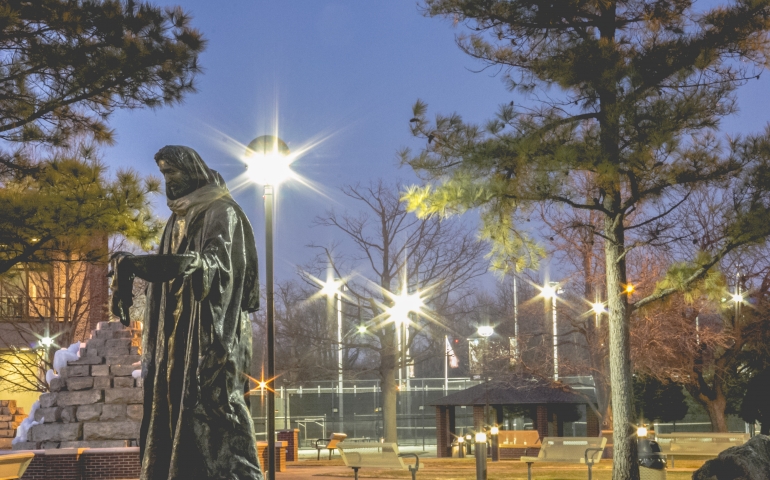[author image=”http://echo.snu.edu/wp-content/uploads/2014/01/IMG_2377-150×150.jpg”]
Alina Scott, Staff Photographer
Alina is a history major and English minor here at SNU. She is originally from Belize, C.A., and loves reading books, studying history and all things Abraham Lincoln. She has worked as a U.S. history tutor and after grad school plans to become a college history professor. [/author]
It seems that in most things, college campuses are plagued by apathy. For a while now I’ve wondered just what it would take to mobilize fellow students in and out of the classroom about politics or injustice. But what makes students apathetic? Is it the heavy workload, increased stress, being extremely exhausted all the time or the combination of it all?
So, in order to answer those questions, I did some research. I found that some of the reasons students are apathetic are simply a result of the college experience and growing up. Margaret Groombridge, learning services coordinator at Brock University and designer of Academic-Zone, suggested some possibilities.
1. Some say the first reason for apathy among students is time management and self regulation. Students are busy, often biting off more they can chew, and thus being over committed. Once developed, this trait becomes a skill, but in the first few years of college especially, students are still figuring that out.
2. Next–and you knew this was coming–is independence. Independence is a contributing factor to student apathy because college and university students are in a transitional period, having gone from living a life under the restrictions of parents to moving out on their own. This too, if used properly, gives us as students the opportunity to choose what we are passionate about, and there are plenty of opportunities for that. Incoming freshmen are often overwhelmed by the immense amount of events and chances to meet new people and try new things. For that reason, students can appear apathetic in one respect, and incredibly interested and sympathetic in another.
3. A third factor affecting student apathy is quite simply strategic decision-making. We’ve all been in that Gen. Ed. that really has nothing to do with our major and is made up of nothing but busywork. In order to make it through classes and situations that don’t appeal to us, we allot our time and effort strategically (i.e. we spend two hours doing work for a class in major and 25 minutes studying for a Gen. Ed. class). Once students have figured out the ins and outs of a class–how much time must be spent doing homework in order to get the desired grade–it’s easy to become apathetic.
What are some solutions to student apathy? In my research I found that some institutions are turning to learning communities (paired courses) in an effort to motivate students. The hope is that once students are more comfortable in their classroom and with their classmates, they will be more engaged. Also, learning communities aim to “strengthen students’ commitment to an institution and the objectives of higher learning, develop and enhance the skills students need to be successful in college, and provide lucidity for the interdisciplinary nature of general education” (Snowden, 2004).
Even with the high number of apathetic students, some think it’s not entirely negative. Ziad Munson, in “Mobilizing on Campus: Conservative Movements and Today’s College Students” (2010) suggested that students have also been some of the key participants in modern social movements. Munson argues college students especially “play an important role in modern social movements,” especially those related to civil rights and women.
Overall, the suggested reasons for student apathy are commonly spoken of in a positive light. A problem arises when students become complacent. If we choose to not develop those skills, we become apathetic. So, what can we do to remedy this? It comes down to us knowing ourselves and seeking out opportunities to grow and learn, even in our short time as college students.
Sources:
Zaid Munson. “Mobilizing on Campus: Conservative Movements and Today’s College Students” Sociological Forum (December 2010). p. 769-786)
Monica Snowden. “Learning Communities as Transformative Pedagogy: Centering Diversity in Introductory Sociology”. Teaching Sociology. (Jul., 2004). p. 291-303.
https://academiczonelms.wordpress.com/2015/03/17/6-reasons-for-student-apathy/
